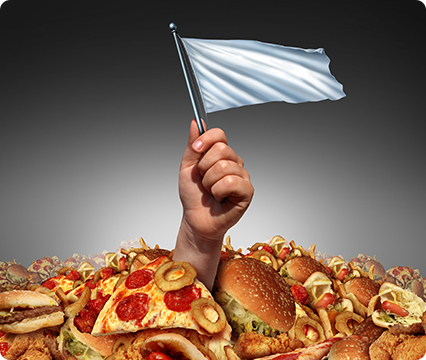Overeating and food addiction in Major Depressive Disorder: Links to peripheral dopamine
CNP Research Summary can be found in the CNP Library Membership


The CNP Diet, Craving, and Food Addiction Research Category explores the psychological, neurobiological, and behavioral interrelations underlying cravings, compulsive overeating, and consumption of highly palatable or ultra-processed foods, highlighting a bidirectional relationship between eating behaviors and dietary intake patterns. Join the CNP Library Membership to learn more.

This 2018 review presents the multifactorial social, neurobehavioral, and metabolic determinants of food intake that influence obesity risk to promote food craving and excessive food intake. The determinants included rewarding foods that stimulate brain reward motivation and stress circuits to influence eating behaviors, as well as stress hormones that hijack the brain’s emotional (limbic) and motivational (striatal) pathways. Sinha (2018) discusses the impact of high-stress levels and trauma, in addition to metabolic alterations such as higher weight, and altered insulin sensitivity, on self-control processes that regulate emotional, motivational, and visceral homeostatic mechanisms of food intake and obesity risk. Also reviewed was the potentially positive interaction between dynamic effects of neurobehavioral adaptations in metabolic, motivation, and stress neurobiology with food craving, excessive food intake, and weight gain. The author highlights key areas that require future investigation to adequately comprehend and address this growing obesity epidemic.
Overeating and food addiction in Major Depressive Disorder: Links to peripheral dopamine
CNP Research Summary can be found in the CNP Library Membership
Ultra-processed foods and binge eating: A retrospective observational study
Low carbohydrate ketogenic therapy as a metabolic treatment for binge eating and ultraprocessed food addiction
CNP Research Summary can be found in the CNP Library Membership
Brain–gut–microbiome interactions in obesity and food addiction
Development of the highly processed food withdrawal scale
What Is the evidence for “food addiction?” A systematic review
CNP Research Summary can be found in the CNP Library Membership
Food addiction and psychiatric comorbidities: a review of current evidence
Food cue reactivity in food addiction: A functional magnetic resonance imaging study
CNP Research Summary can be found in the CNP Library Membership
Foods and dietary profiles associated with ‘food addiction’ in young adults